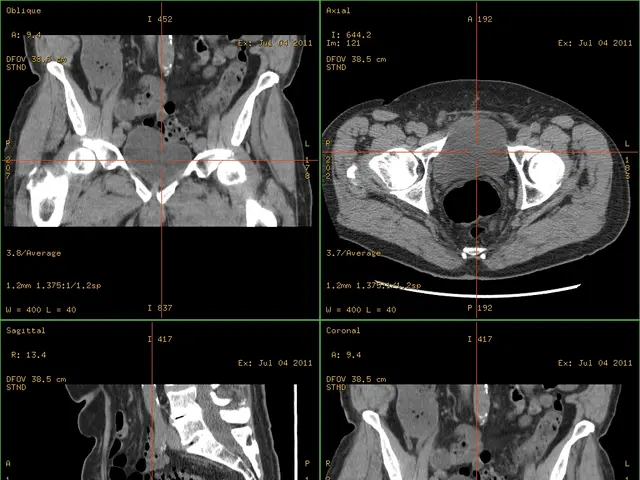Donepezil (Aricept): Understanding Potential Side Effects and Strategies for Management
Article Title: Potential Side Effects of Aricept (Donepezil) for Alzheimer's Treatment
Aricept, a medication commonly used to treat Alzheimer's disease, has been shown to be effective in managing symptoms for many patients. However, like many drugs, it comes with potential side effects that individuals should be aware of.
One of the less common but more severe side effects of Aricept includes heart problems such as bradycardia (slow heartbeat) and heart block (disruption of electrical signals in the heart), which can be serious and require urgent care. Additionally, severe digestive issues, including a high level of stomach acid potentially causing ulcers or bleeding in the stomach, have been reported. Urinary problems, such as incontinence (loss of bladder control) and urinary tract infections, are also among the less common but potentially serious side effects.
Neurological and psychiatric symptoms, including hallucinations, aggression or hostility, nightmares or unusual dreams, and seizures, are other less common but serious side effects. Allergic reactions, ranging from mild rash to severe symptoms like swelling and difficulty breathing, which can be life-threatening, are also a potential risk.
It's important to note that immediate medical attention is advised if any of these severe side effects occur.
In addition, Aricept can exacerbate behavioral symptoms such as increased impulsivity or hallucinations, especially in patients with frontotemporal dementia or Lewy body disease. Therefore, caution is recommended in these populations.
While dizziness and nausea are more common side effects, the serious reactions listed above are less frequent but potentially more dangerous.
In clinical trials, the most common side effect of Aricept was nausea. Nausea, vomiting, and diarrhea were among the most common side effects, and they became more common at higher doses. Significant weight loss can also be a side effect, particularly in people weighing less than 55 kilograms (121 pounds).
Aricept can interact with nonsteroidal anti-inflammatory drugs (NSAIDs) and increase the risk of stomach ulcers or gastrointestinal bleeding. It's important to discuss any medications you are currently taking with your healthcare provider to ensure safe use of Aricept.
It's worth noting that Aricept and generic donepezil, which contains the same active ingredient, can cause the same side effects.
The average age of people participating in Aricept's clinical trials was 73 years. However, it's not clear whether Aricept affects older adults differently than younger adults, as it is prescribed to treat Alzheimer's disease, which mainly affects people ages 65 years and older.
In conclusion, while Aricept can be an effective treatment for Alzheimer's disease, it's essential to be aware of its potential side effects. If you experience any severe side effects, seek immediate medical attention. Always discuss any concerns with your healthcare provider.
[1] Drug Information: Donepezil (Aricept) - Mayo Clinic [2] Donepezil: MedlinePlus Drug Information
Note: This article is intended to provide general information and is not a substitute for professional medical advice or treatment for any medical condition. Always consult with a healthcare provider for any questions or concerns regarding your health or medications.
- Despite its effectiveness in managing symptoms of Alzheimer's disease, Aricept, which contains the same active ingredient as generic donepezil, can potentially cause serious side effects such as heart problems, digestive issues, urinary problems, neurological and psychiatric symptoms, allergic reactions, and exacerbation of behavioral symptoms in certain populations.
- It's essential for individuals taking Aricept to be aware of these serious side effects and seek immediate medical attention if they occur.
- Aricept can interact with nonsteroidal anti-inflammatory drugs (NSAIDs) and increase the risk of stomach ulcers or gastrointestinal bleeding, so it's important to discuss any medications you are currently taking with your healthcare provider to ensure safe use of Aricept.
- Mental health concerns such as hallucinations, aggression or hostility, nightmares or unusual dreams, and seizures are among the less common but serious side effects associated with Aricept. Additionally, therapies and treatments for mental health may be necessary for those experiencing such symptoms due to Aricept usage.




